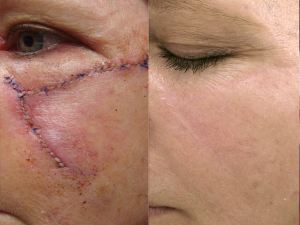Dermal Filler Preparation & Aftercare: Maximise Your Results
Dermal fillers are injectable gels that restore volume, smooth wrinkles and contour the face without surgery. While the procedure itself is quick, the steps you take before and after your appointment can make a big difference in how you look and feel. This guide combines pre‑treatment preparation with post‑care tips so you can minimise bruising and swelling, support healing and prolong your results.
Why Preparation & Aftercare Matter
Fillers work by lifting and plumping the skin from within. Your body responds to injections with increased blood flow and inflammation, which is why certain medications, supplements and habits can lead to extra bruising or swelling. After treatment, gentle handling and proper care help the product settle evenly and keep it in place. Following these guidelines supports a comfortable experience and natural‑looking results.
Preparing for Your Dermal Filler Appointment
Two Weeks Before
- Plan ahead: Schedule your filler appointment at least two weeks before big events. This allows any swelling or bruising to resolve and gives the filler time to integrate.
- Avoid major procedures: Postpone dental work, tattoos, piercings, laser treatments, chemical peels or other cosmetic procedures for at least two weeks before your injections to reduce inflammation and infection risk.
- Review medications and supplements: Discuss all prescription and over‑the‑counter medications, vitamins and herbal supplements with your provider. They may advise pausing blood‑thinning agents like aspirin, ibuprofen, naproxen, Motrin and Aleve, as well as fish oil, vitamin E, St. John’s wort, ginkgo biloba, flaxseed and ginseng.
- Consider natural remedies: If you bruise easily, ask your injector about starting arnica or bromelain a week prior to treatment; these homeopathic supplements may help reduce bruising.
- Communicate your health history: Let your provider know about any medical conditions, allergies or a history of cold sores. They may prescribe antiviral medication to prevent an outbreak around the injection sites.
One Week Before
- Stop blood‑thinning medications and supplements: Unless prescribed by your physician, discontinue NSAIDs and blood‑thinning supplements at least one week before your appointment. Always consult your healthcare provider before stopping prescribed medications.
- Adjust your skin care: Stop using topical retinoids (tretinoin), retinol, glycolic acid, benzoyl peroxide and other exfoliating or irritating products on areas to be treated. Give your skin a break so it’s calm and healthy on the day of injections.
- Avoid hair removal: Do not wax, thread, tweeze or use depilatory creams on the treatment areas. Removing hair can irritate the skin and increase discomfort during injections.
- Hydrate and nourish: Drink plenty of water and eat a balanced diet rich in fruits, vegetables and lean proteins. Good hydration and nutrition support your skin’s health and healing.
The Day Before & Day of Treatment
- No alcohol, caffeine or smoking: Avoid alcoholic beverages, caffeinated drinks and tobacco for 24 hours prior to your appointment. These can dilate blood vessels, leading to more bruising and swelling.
- Avoid strenuous exercise: Skip high‑intensity workouts, hot yoga or heavy lifting the day before and the day of your appointment. Elevated heart rate and blood pressure can exacerbate bleeding and bruising.
- Protect your skin: Stay out of the sun, tanning beds, saunas and steam rooms. Heat and sun exposure can inflame your skin and delay healing.
- Cleanse your face: On the day of your appointment, wash your face gently and arrive without makeup, moisturiser or sunscreen. Your provider will further cleanse and prep the area before injecting.
- Eat a light meal: Have a snack or small meal before your appointment to maintain steady blood sugar and prevent light‑headedness during the procedure.
- Wear comfortable clothing: Choose something that doesn’t need to be pulled over your head, minimising contact with your face afterward.
Who Should Delay or Avoid Fillers
- You are pregnant or breastfeeding.
- You have an active infection, rash or cold sore near the treatment area.
- You have had recent dental work, surgery or vaccinations within the past few weeks.
- You take immunosuppressive medications or have autoimmune or bleeding disorders—consult your doctor and injector for clearance.
- You have a known allergy to any component of the filler.


